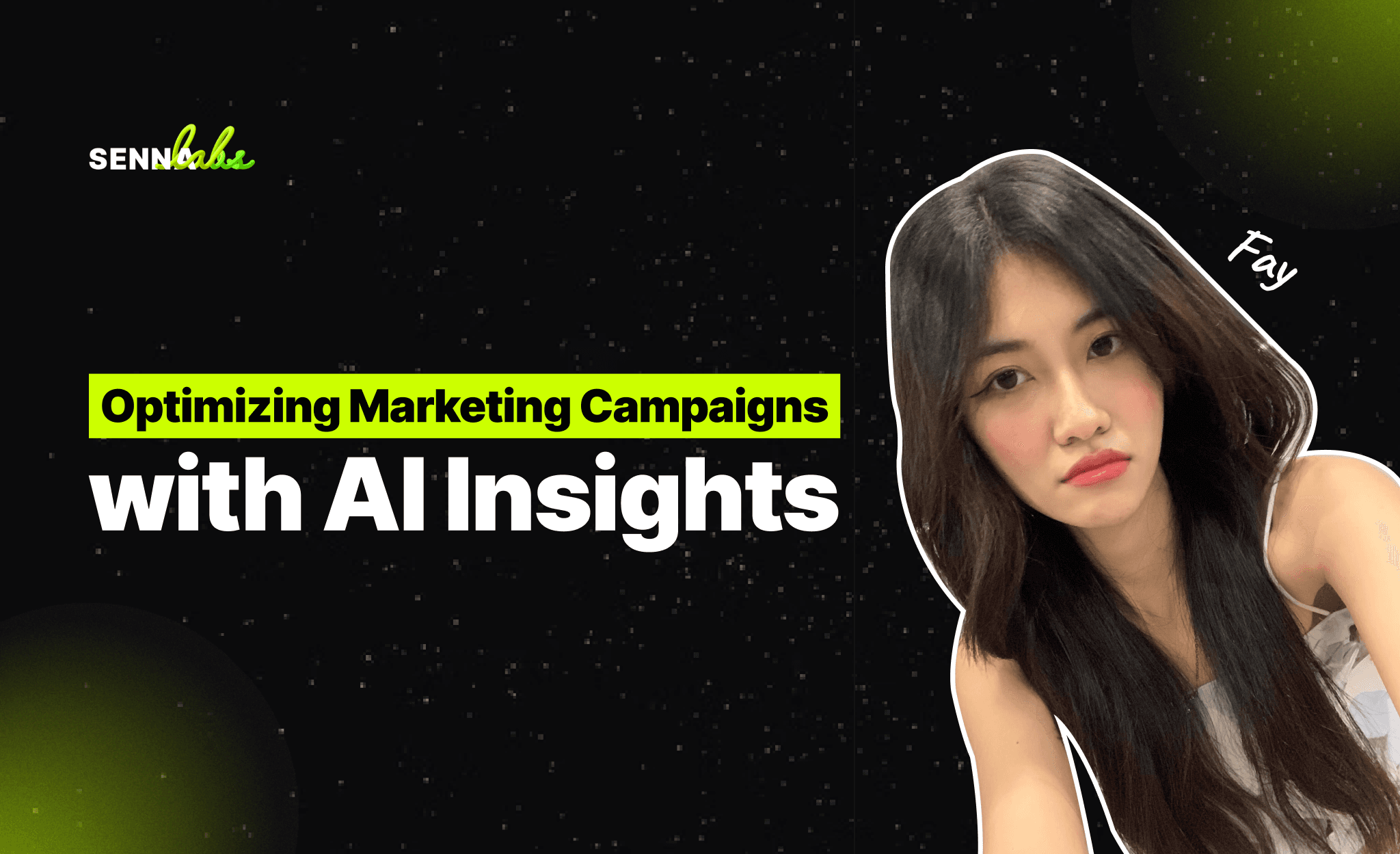Optimizing Marketing Campaigns with AI Insights
Share

In the fast-evolving world of marketing, the ability to understand and engage target audiences is paramount. With vast amounts of data being generated daily, traditional methods of campaign planning and execution can fall short of delivering the precision and impact businesses require. Enter artificial intelligence (AI), a transformative force that enables marketers to harness data for actionable insights, optimize strategies, and drive results. AI-powered tools are revolutionizing marketing campaigns, offering unparalleled accuracy, efficiency, and personalization.
This article explores how AI-driven insights are reshaping marketing, focusing on their application in data-driven strategies for creating targeted and effective campaigns.

The Role of AI in Marketing
AI has become a cornerstone of modern marketing, offering capabilities far beyond traditional analytics. By leveraging machine learning, natural language processing (NLP), and predictive modeling, AI systems can analyze consumer behavior, market trends, and historical data to provide actionable insights. These insights empower marketers to make informed decisions, create hyper-targeted campaigns, and deliver content that resonates with their audience.
AI doesn’t just streamline the process of planning and executing campaigns—it transforms how brands interact with consumers. From automating routine tasks to delivering real-time recommendations, AI tools enhance efficiency while maximizing impact.
Use Case: Data-Driven Marketing Campaigns
One of the most compelling applications of AI in marketing is its ability to enable data-driven campaigns. AI agents analyze vast datasets, uncover patterns, and provide actionable insights that help marketers create highly targeted strategies. Here’s how AI enhances data-driven marketing:
-
Consumer Behavior Analysis:
AI tools track and analyze user interactions across multiple channels, including websites, social media, and email. By identifying browsing habits, purchase history, and engagement patterns, these tools build detailed customer profiles that guide targeted messaging. -
Market Trend Prediction:
By analyzing historical data and current trends, AI systems predict future market movements. This allows marketers to anticipate consumer needs, align campaigns with emerging trends, and stay ahead of competitors. -
Audience Segmentation:
AI enables precise audience segmentation based on factors like demographics, interests, and behaviors. For example, an AI agent might identify a group of eco-conscious consumers within a larger audience and recommend sustainability-focused content to engage them effectively. -
Optimizing Content Strategies:
AI analyzes the performance of past content to identify what resonates most with audiences. These insights inform future strategies, ensuring that marketers produce content that aligns with audience preferences and drives conversions. -
Real-Time Campaign Adjustments:
AI systems monitor campaign performance in real-time, identifying areas of success and opportunities for improvement. For example, if an email campaign’s open rate is lower than expected, AI can suggest changes to the subject line or timing to boost engagement. -
Personalized Recommendations:
AI tools deliver personalized recommendations at scale, such as suggesting products based on a customer’s browsing history or recommending articles tailored to their interests. This level of personalization builds stronger connections with consumers.
Benefits of AI-Driven Marketing Insights
-
Enhanced Targeting:
AI enables marketers to understand their audience deeply, allowing for campaigns that speak directly to individual preferences and needs. -
Improved ROI:
By focusing resources on strategies and channels that deliver the best results, AI insights help businesses maximize their return on investment (ROI). -
Efficiency and Speed:
AI automates data analysis, reducing the time spent on manual tasks and enabling faster decision-making. -
Predictive Capabilities:
AI’s ability to forecast trends and behaviors allows marketers to create proactive strategies that resonate with future customer needs. -
Personalized Experiences:
Personalization fosters stronger relationships with consumers, leading to increased loyalty and higher conversion rates. -
Data-Driven Confidence:
AI insights are rooted in data, providing marketers with the confidence to make decisions backed by evidence rather than intuition.
Challenges in Implementing AI for Marketing
While the benefits of AI in marketing are significant, implementing these systems comes with challenges:
-
Data Privacy Concerns:
Collecting and analyzing consumer data must be done in compliance with privacy regulations such as GDPR and CCPA. Mismanagement of data can damage trust and lead to legal repercussions. -
Integration with Existing Systems:
Integrating AI tools with legacy systems and platforms can be complex, requiring technical expertise and significant resources. -
Interpreting AI Insights:
While AI provides insights, marketers must still interpret these results effectively to apply them strategically. -
Initial Investment:
Developing and deploying AI tools requires upfront investment in technology, training, and resources, which can be a barrier for smaller businesses. -
Dependence on Data Quality:
The accuracy and effectiveness of AI-driven insights depend on the quality and completeness of the data. Incomplete or biased data can lead to inaccurate recommendations.
Best Practices for Leveraging AI in Marketing
To maximize the potential of AI-driven insights, marketers should follow these best practices:
-
Define Clear Objectives:
Identify specific goals, such as improving conversion rates or increasing engagement, to guide the use of AI tools. -
Prioritize Data Privacy:
Ensure that data collection and usage adhere to privacy regulations and communicate transparently with consumers about how their data is used. -
Invest in Training:
Equip marketing teams with the skills needed to understand and interpret AI insights effectively. -
Start Small and Scale Gradually:
Begin with pilot projects to test the effectiveness of AI tools before scaling up to larger campaigns. -
Continuously Monitor Performance:
Regularly evaluate the performance of AI-driven campaigns and adjust strategies based on real-time insights and feedback.
The Future of AI in Marketing
The role of AI in marketing is set to expand as technology continues to evolve. Advancements in natural language processing, predictive analytics, and machine learning will make AI systems even more intuitive and effective. Emerging trends, such as voice search optimization and augmented reality (AR) marketing, will further enhance how AI tools deliver insights and improve customer engagement.
Moreover, AI systems are expected to play a larger role in emotional analysis, enabling marketers to understand the sentiments and emotions behind consumer behaviors. This will lead to even more personalized and empathetic campaigns that resonate on a deeper level.
Conclusion
AI-driven insights are transforming the marketing landscape by enabling data-driven strategies that deliver exceptional results. From analyzing consumer behavior to predicting market trends, AI tools empower marketers to create targeted, effective, and personalized campaigns that resonate with their audience. While challenges exist, thoughtful implementation and a commitment to ethical data practices can unlock the full potential of AI in marketing, setting the stage for a future where campaigns are more impactful and efficient than ever before.

Share

Keep me postedto follow product news, latest in technology, solutions, and updates
Related articles
Explore all


